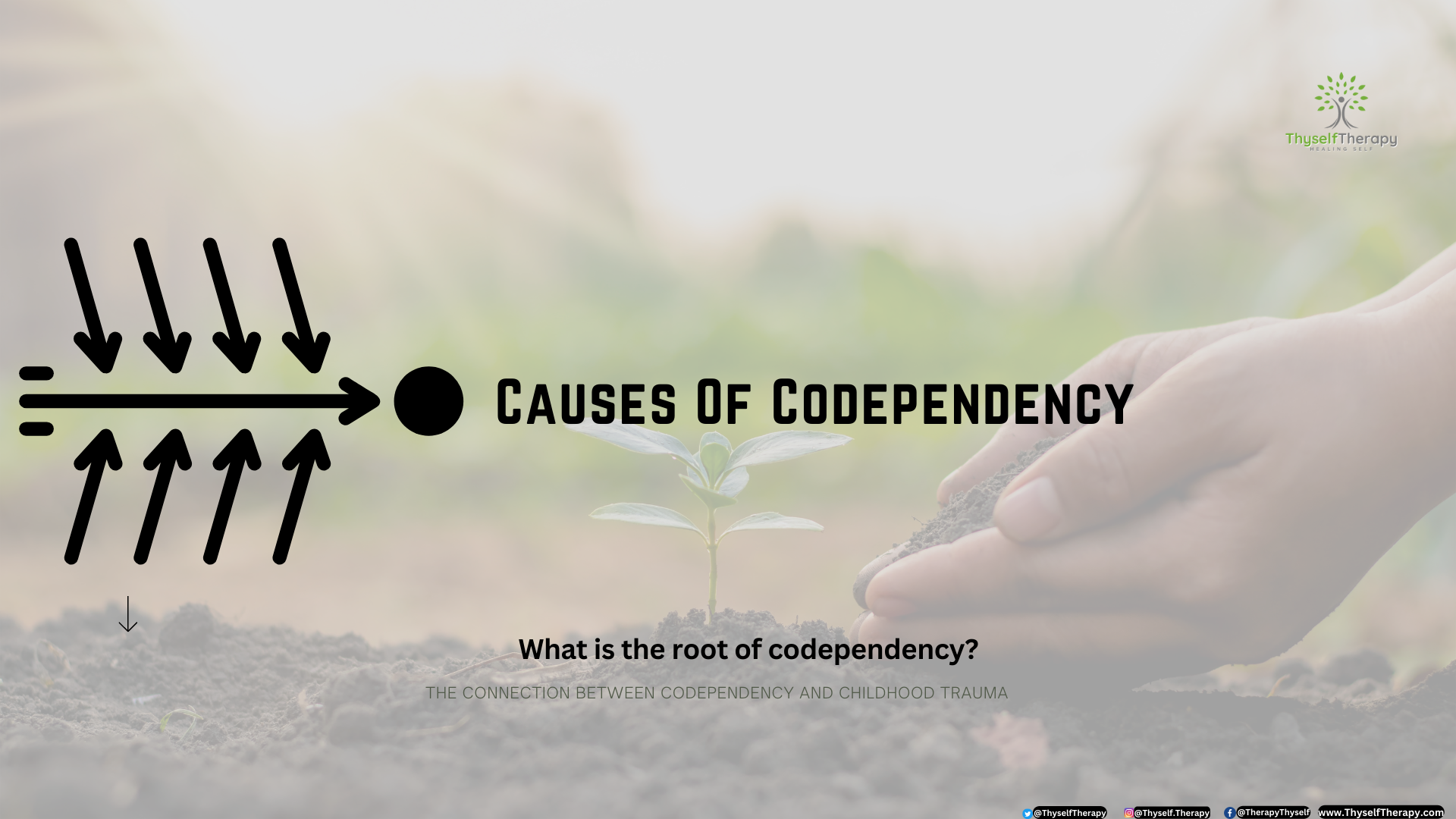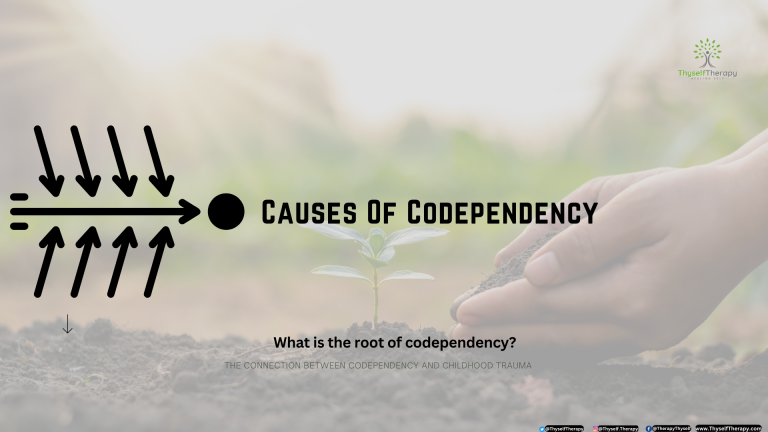Causes Of Codependency
The causes of codependency vary from person to person. However, some underlying factors can lead to its development. These include family dynamics, low self-worth, and previous experiences with dysfunctional relationships. Codependency is a complex issue that can have deep psychological roots. It often develops due to an individual’s upbringing and childhood experiences, such as growing up in a household where one or both parents displayed codependent traits. Other times it may stem from traumatic events or major life changes such as divorce or job loss.
Family dynamics can play an important role in the formation of codependent behaviours. Those who grow up in households where one or both parents display controlling or manipulative behaviours may find themselves replicating this behaviour as adults in their relationships. This often stems from a desire for approval and acceptance, which can be difficult if these patterns are not modelled during childhood.
Low self-worth is another common factor when it comes to developing codependent tendencies. Those struggling with inadequacy, guilt, or shame may look outside of themselves for validation by trying to please others at all costs, even if it means sacrificing their needs or interests. This behaviour reinforces unhealthy thought patterns while preventing true emotional intimacy within any relationship due to fear of rejection or abandonment.
Previous experiences with dysfunctional relationships can also contribute to codependency later on down the line. Being repeatedly exposed to emotionally unstable environments only normalizes such behaviours until they become ingrained habits over time – making it increasingly more difficult for someone affected by codependency to recognize healthy boundaries and remove themselves from toxic situations before things get out of hand.
It’s important, then, to understand how our past has shaped us so we can work towards healing ourselves and creating healthier connections moving forward into the future.
In addition to environmental factors, biological influences like genetics could also be at play regarding codependency. Research suggests that people predisposed to certain mental health conditions—such as depression, anxiety, addiction, or eating disorders—may be more likely to develop codependent behaviours due to vulnerability.
Social pressure can also lead to individuals becoming overly dependent on others for validation and approval. Our current culture emphasizes external success rather than inner fulfilment, which can cause individuals to strive for perfection instead of self-acceptance, leading to codependency.
Lastly, unresolved personal issues like low self-esteem or feelings of inadequacy can make someone more susceptible to developing unhealthy relationships with other people to fill an emotional void within themselves. When left unaddressed, these emotions become ingrained in one’s behaviour, making it difficult for them to break free from this cycle without professional help. Gaining true autonomy and reclaiming control over one’s life requires taking responsibility for your happiness and well-being before relying on anyone else. With awareness being key to breaking the cycle of codependency, understanding its different types is essential to effectively identifying any destructive patterns you may be engaging in yourself or notice in those around you.
[highlight background=” color=”]What makes a person codependent? [/highlight]
Causes of Codependency
Despite many potential triggers, a person’s past can significantly shape their present-day codependence.
What is the root of codependency?
Someone with a codependent personality may have encountered interpersonal and family problems. Some of the more obvious warning signs of codependence include:
Childhood Trauma and Codependency
Attachment Style Patterns Developed in Early Childhood: Codependency is not a clinical diagnostic or personality condition, but it does involve some characteristics of how people learn to connect to others at a young age: childhood abuse or neglect.
The Connection between Codependency and Childhood Trauma
There is evidence linking childhood trauma and the development of codependency in adult relationships. This is because having experienced childhood trauma might hinder one’s capacity to form positive coping strategies, self-esteem, and a sense of self-worth. Thus, people may seek solace in codependency to cope with their emotional distress. Learning to rely on others is a coping mechanism that begins in childhood. When threatened, our bodies react in one of three ways: fight, flight, or freeze. Human beings have evolved to react to danger, whether real or imagined. There are those of us who choose to fight aggressively, those who choose to flee, and those who become so overwhelmed that we shut down and freeze.
The Impact of Codependency and Childhood Trauma
Codependency and early trauma can have far-reaching and long-lasting effects on a person’s development and well-being. Codependents are vulnerable to toxic and violent relationships and commonly suffer from low self-esteem, anxiety, and depression. Addiction, obsessive behaviour, and other forms of self-harm may also be issues they face.
Conversely, childhood trauma has been linked to various mental health issues like PTSD, anxiety, and depression (PTSD). A person’s capacity to trust people, develop positive connections, and feel comfortable in their skin can all be negatively impacted by this.
Growing up in a dysfunctional family environment
Codependency develops in families where negative emotions are suppressed or disregarded. Substance abuse, domestic violence, and long-term physical or mental disease are all examples of problems with a foundation that might be to blame for the dysfunction. Codependency is more common in dysfunctional households when emotions like anger, sadness, fear, and humiliation are suppressed or neglected.
Addiction, abuse, and persistent physical or mental disease are the underlying factors leading to codependency.


